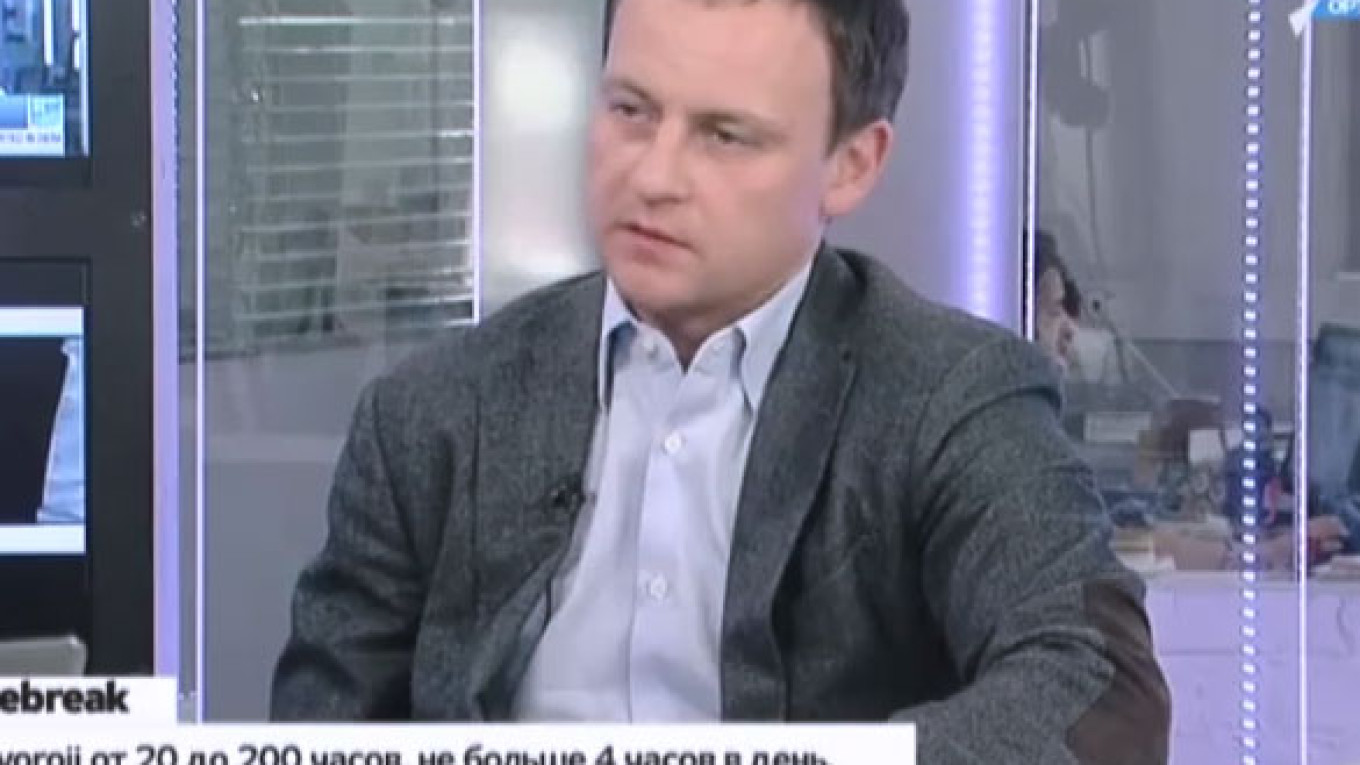Foreign-funded NGOs involved in “political” activities must register as “foreign agents” or risk hefty fines and imprisonment under a new bill backed by the nation’s ruling party.
Such nongovernmental organizations would have to publish a biannual report of their activities, undertake an annual financial audit and display the label “foreign agent” on their website and publications, according to the bill, submitted to the State Duma on Friday.
If such an NGO fails to register within 90 days of the law’s entering into force, members could face four-year prison terms and 300,000 ruble fines, the bill’s author, United Russia Deputy Alexander Sidyakin, told RIA-Novosti.
Sidyakin was also responsible for drafting the much-contested rally bill, which hiked fines for disorder at demonstrations to 300,000 rubles.
Civil society groups have condemned the NGO bill as violating democratic standards.
Anna Sevortyan, director of Human Rights Watch Russia, told The Moscow Times that the proposal reminded her of the 1930s.
“I was shocked to see that Russian NGOs will have to be marked out as foreign agents,” she said, calling the proposal “outrageous” and saying it breaches international commitments, including to the Council of Europe.
“It is a very worrying signal from the State Duma, which is trying to put a seal on the forehead of these organizations that get funding from abroad, which is not illegal,” Sergei Nikitin, director of Amnesty International Russia, said by phone.
Sidyakin, the bill’s author, wrote on his website that the measure would force foreign-funded NGOs to reveal “the true nature of their activities” and promote the “national interests and sovereignty of Russia.”
“It is obvious that in Russia there is a whole network of nongovernmental organizations whose paid activity raises suspicions about the aims of the client,” wrote Sidyakin, 34.
“There are two options: either speculate and be indignant about the multimillion tranches [of cash] from the U.S. State Department, allegedly to promote democracy, or regulate these foreign agents so they can be unambiguously defined as proponents of the interests of other governments,” Sidyakin wrote.
The bill has Kremlin support, Vedomosti wrote, and fits into a pattern of official suspicion about Western influence.
Last year, then-Prime Minister Vladimir Putin blamed U.S. Secretary of State Hillary Clinton for inciting unrest that brought tens of thousands to protest alleged fraud in December’s parliamentary elections.
Nonstate groups fear that the bill’s definition of “political activity” will be drawn widely to curtail their role.
“It is very broad and very unclear,” Pyotr Gorbunenko, managing director of WWF Russia, said by phone. “Any action that could be considered an action to change the policy of state bodies is political. In that case, all nongovernmental organizations would be treated as political.”
“I see here an attempt to take control of the whole third sector,” he said. “These proposals could be even more destructive than the 2006 law,” he added, referring to a law that sharply tightened registration requirements for NGOs.
“A lot of organizations would have to stop their work,” he said, “because the state doesn’t provide serious support.”
Grigory Melkonyants of Golos, the vote-monitoring organization that was raided by officials last year, warned that the bill would pressure NGOs.
“The law could lead to definite problems for NGOs because not all have the chance to give an account of themselves in this way,” he told Kommersant. “And we all know how biased state agencies can be when they check NGOs, so they can find fault with anyone.”
Sevortyan of Human Rights Watch said the measures were “clearly excessive and unnecessary,” pointing out that all Russian NGOs already publish financial reports, as required by Russian law.
Sidyakin insists that his bill is inspired by international practice, citing the United States.
Sergei Nikitin, director of Amnesty International Russia, noted that the phrase “foreign agents” had been borrowed from the U.S.
“That [U.S.] law was introduced in 1938 and since then has been changed several times. I think they have slightly different applications,” he said.
The Kremlin’s human rights council will scrutinize the bill, its head, Mikhail Fedotov, told RBC Daily, noting that the council was weaker since the departure of almost half its members this year.
When mass opposition protests kicked off in December following disputed Duma elections, Putin accused Clinton of instigating the unrest and said foreign countries were spending hundreds of millions of dollars via grants to influence the outcome of Russia’s elections.
Clinton and other U.S. officials repeatedly denied any involvement.
While visiting St. Petersburg on Friday, Clinton had a meeting with local NGO representatives, who raised concerns over the looming legislation, Kommersant reported Saturday.
Ethnic-relations expert Dmitry Dubrovsky, who attended the closed-door meeting, said Clinton is aware of the situation and is “searching for ways to modify the support of Russia’s NGOs without subjecting them to crackdown.”


